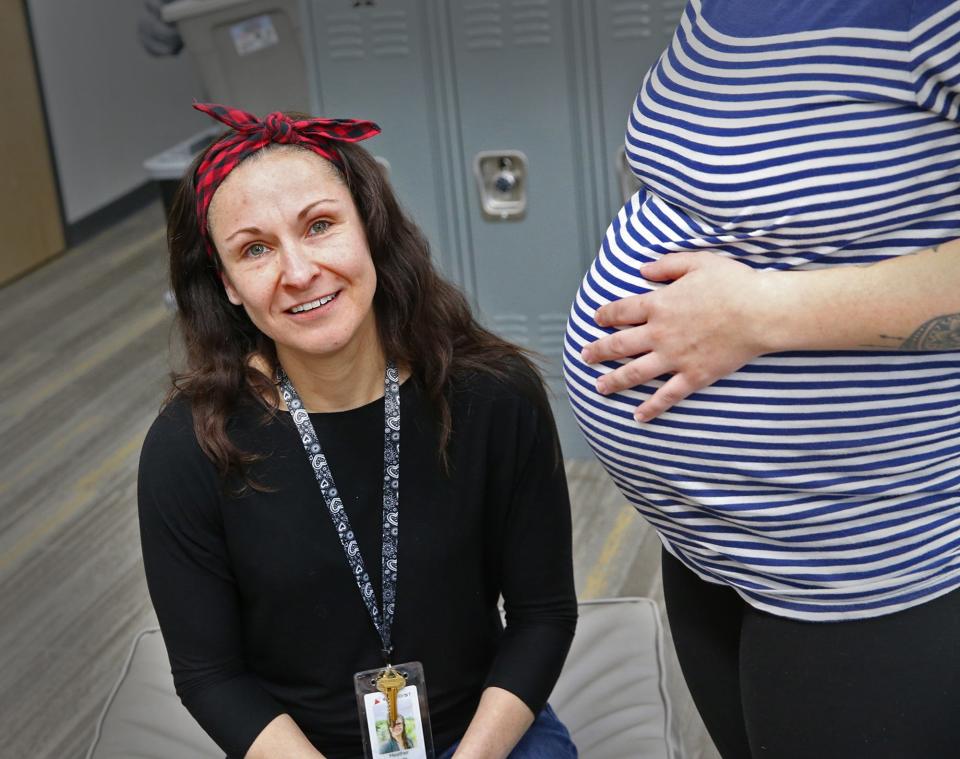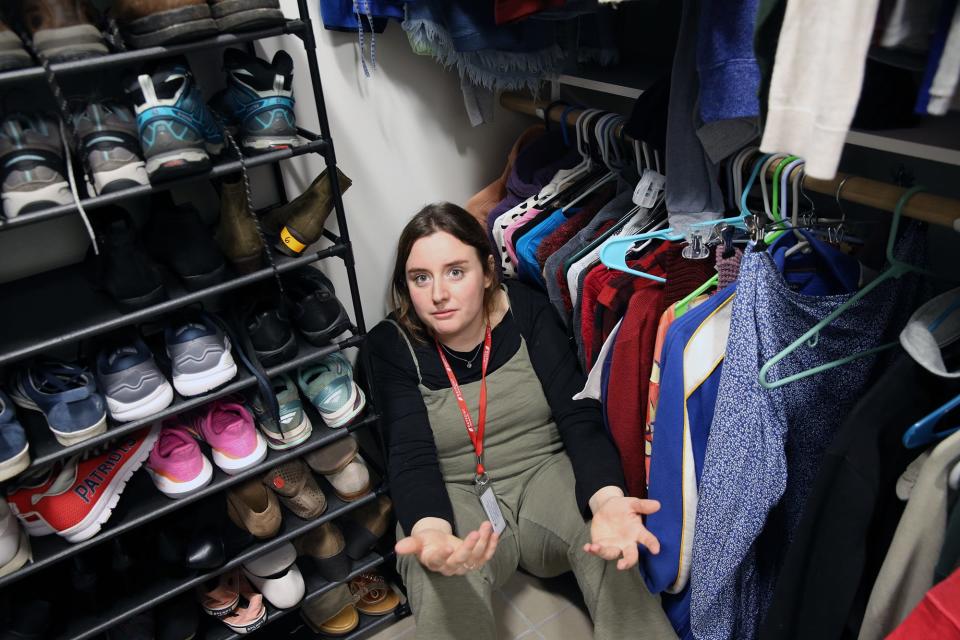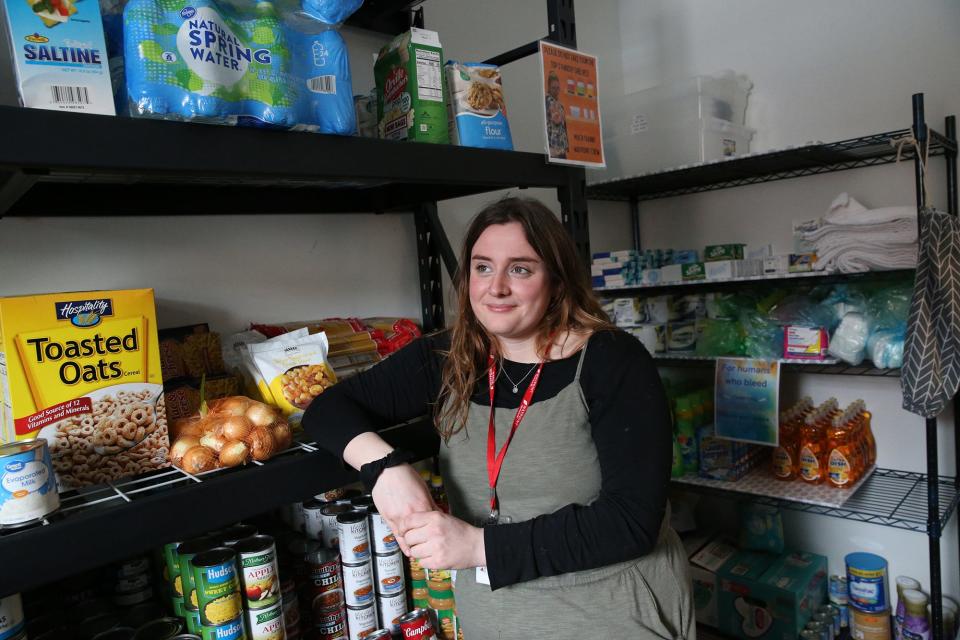Waypoint SleepOut 2023: Care coordinators speak up on need to help homeless youth
ROCHESTER — With Waypoint's 2023 SleepOut fundraising event on the horizon in New Hampshire, the people who work with homeless youth are explaining what they do, why they do it, and why they believe we all need to get involved.
"I really hope people become a little more aware," said Heather Beaule, who works with unhoused youth who are pregnant or who already are parenting a child. "Take notice because this is happening so much more than you are aware of. Until I started working for Waypoint, I didn't realize how bad the situation really is."
One in 10 young adults ages 18-25, and 1 in 30 adolescents, ages 13-17, endure some form of homelessness in America within a 12-month period, according to the latest report by Chapin Hall - University of Chicago. Waypoint estimates 14,000-15,000 youth are likely to experience some form of homelessness or housing insecurity in New Hampshire this year. Last year, Waypoint had nearly 1,500 contacts with youth who were experiencing homelessness in the state.

Waypoint, which has a new Youth Resource Center in Rochester, is the sole local provider of comprehensive services for youth experiencing homelessness. The agency provides survival aid and basic needs relief and contributes to long-term stability and self-sufficiency through educational advocacy, job and life skills training, housing, access to mental health and addiction treatment services.
What it's like helping with you adults and parents facing homelessness
Beaule and Jenni Palkovic both work for Waypoint as care coordinators in the transitional living program.
Beaule serve clients 18-22 years old who are pregnant or already a parent. They have at least 50% custody of their child.
"I help them set up life after pregnancy," said Beaule. "I help with housing vouchers, child care, a job, education, and any other obstacles they might have, like mental health barriers. I get them ready to be on their own."
One reason the general population may not realize the scope of homeless youth is because they typically don't live in homeless camps. Instead, they are couch surfing, living in their cars, but have no place to call home.
Palkovic, a social worker, works with young adults ages 18-21 who are unhoused. She works at the Waypoint transitional center in Dover, but also in Manchester and Concord.

"Currently I have six clients in our houses, and six more in after care, meaning they are moving to a more permanent home. I am a case manager and provide intensive services one on one. We also do groups, where the youth we serve learn how to 'adult' in a new home situation," she said.
Palkovic said she studied at Plymouth State University and gained her focus through a professor there. She said Dr. Kim Livingstone, a big advocate for homeless youth, serving as chair of the Youth Success Project, helped her get involved in helping unhoused people in domestic violence situations, often with youth.
"When this position opened up, it was perfect," she said. "I was an resident adviser in college, so working with kids was right up my alley and I found I loved it. The best part of my job comes because I learn something from these kids every day. I walk their journey with them and there is nothing better than helping them gain security, giving them something they may have never had before."
Palkovic said some of her clients are where they are because of the coronavirus pandemic.
"When schools closed and went remote, they had no access to the Internet, didn't have a computer, so they were forced to drop out of school," she said. "Parents told them they couldn't afford them and they had to leave. Some have developmental disabilities. They began couch surfing, a week at grandma's, a week at an aunt's, all while trying to stay in school, trying to hold down a job. Even with a job, at minimum wage, they cannot afford a place to live, so they are homeless. I love to see them develop trust, love to watch their joy at having a room with a lock on the door. It is joyous."
Beaule said some of her clients are living in their cars when they come to her.
"I have one young woman who was living in her friend's car and she was eight and half months pregnant," said Beaule. "We worked with her and got her into housing, a week before her child was born. Spanish was her primary language, so that was an added barrier because I do not speak Spanish. We made it work.
"This work is so rewarding," said Beaule. "I used to work with just children. Now, I get both worlds. I work with young adults and their children."
Waypoint is 'the first entry point," said Palkovic. "We have a food pantry, showers, and we offer a safe place to be while their basic needs are met."

Beaule said there are a lot of mental health issues, and she said that is not surprising.
"If you are a homeless youth, you are going to be stressed, be depressed," she said. "Sometimes they have parents who are incarcerated or have substance use problems. In one of my cases, the person lost her mother. The dad wanted nothing to do with her. She grew up on the streets. Some of these kids are on the streets as young as 14 years old. It is very eye-opening if anyone takes the time for a good look."
How to get involved with Waypoint SleepOut 2023
Registration is now open for the ninth annual Waypoint SleepOut on Friday, March 24. The SleepOut is a night spent out in the cold to raise community consciousness about youth homelessness and to raise funds for services. Register at waypointnh.org.
Registered participants may opt to sleep out (or in) at a place of their choosing, or they may join in one of the Waypoint-hosted, in-person gatherings in downtown Manchester and Rochester.
In 2022, Waypoint expanded its services throughout the state with new youth resource centers in Rochester and Manchester, community-based outreach services in Concord, and an overnight emergency shelter in Manchester.
"There are not enough resources available to us to meet all the needs," said Beaule. "The more awareness we can spread, the more we have hope that people will want to get involved. We welcome that."
More information is available at www.waypointnh.org/sleepout2023.
This article originally appeared on Fosters Daily Democrat: Waypoint SleepOut 2023: How you can help local homeless youth

